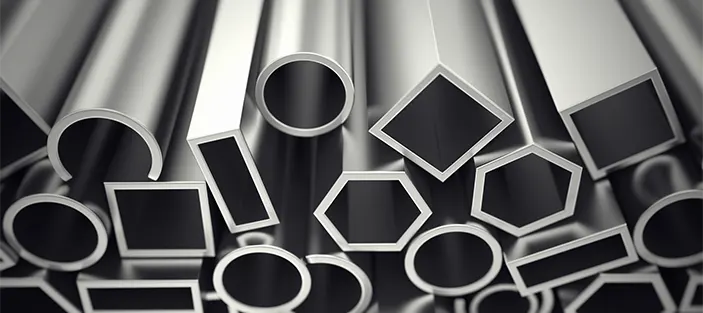Aluminum is one of the most versatile materials available today. Due to its unique combination of characteristics, there is an Aluminum alloy for almost any application and it is the most widely used non-ferrous metal. Aluminum is highly resistance to corrosion due to the natural oxide film that forms when exposed to air. Some Aluminum alloys are stronger than structural steel yet much lighter. Furthermore, aluminum has electrical conductivity high enough for use as electrical conductors.
Aluminum comes in Non-Heat Treatable and Heat Treatable Alloys.
Non-Heat Treatable Aluminum Alloys
- 1100
- Excellent corrosion resistance high thermal and electrical conductivity excellent workability readily welded and brazed.
- 1350
- Used for electrical conductivity
- 3003
- High resistance to corrosion, multi usage, medium strength and good workability and weldability
- 5005
- Moderate to high strength, good welding properties, and good corrosion resistance, forms easily, excellent for anodizing since it exhibits less tendency to structural streaking.
- 5052
- Excellent resistance to saltwater corrosion, high strength than 1100, 3003 alloys and good workability and weldability.
- 5086
- Good forming properties, excellent corrosion resistance in marine environments, excellent weldability, stronger than 5052.
Heat Treatable Aluminum Alloys
- 6061
- Very versatile alloy with good formability and high resistance to corrosion.
- 6063
- High corrosion resistance, average strength, and good finish.
- 6101
- Excellent electrical and thermal conductivity, used for electrical conductors.
- 7075
- One of hardest and strongest alloys available, good machinability and fair corrosion resistance.
- 2024
- High strength, formability and workability is medium and may be spot welded.







